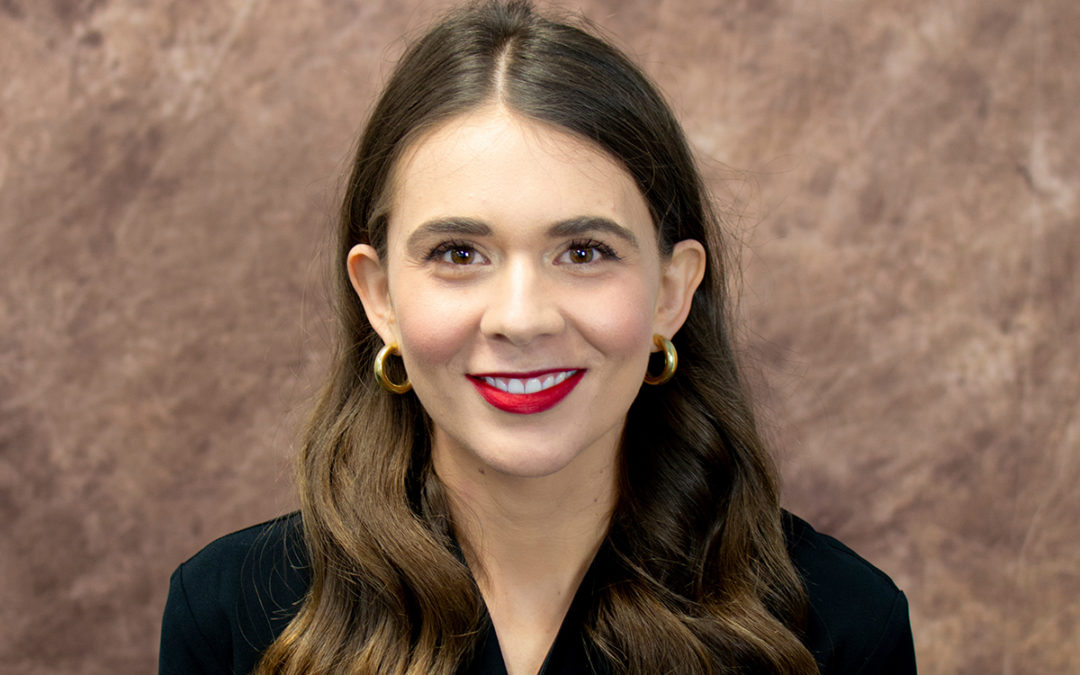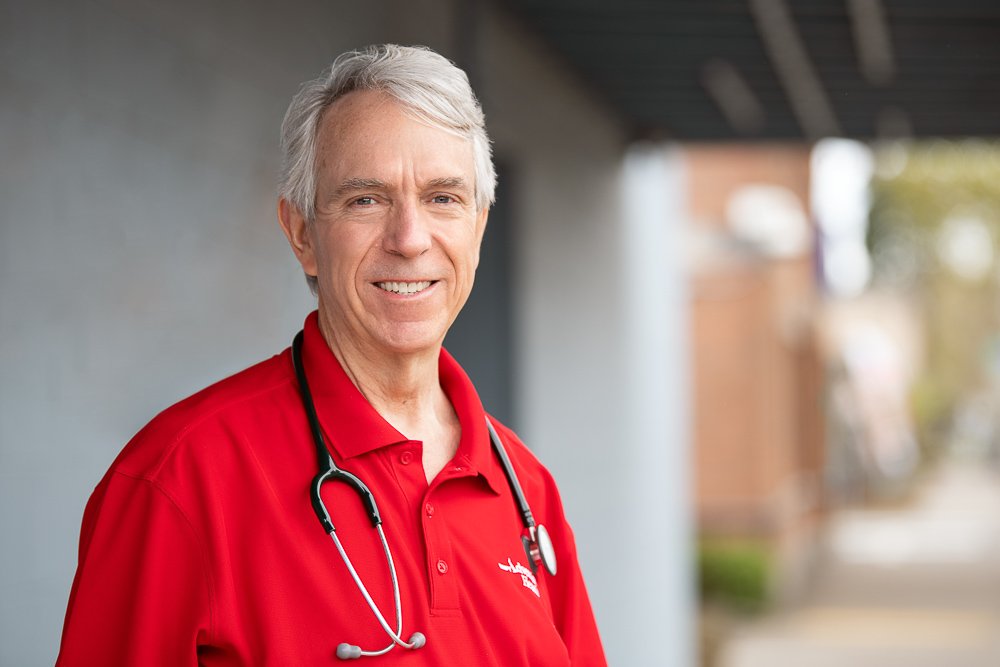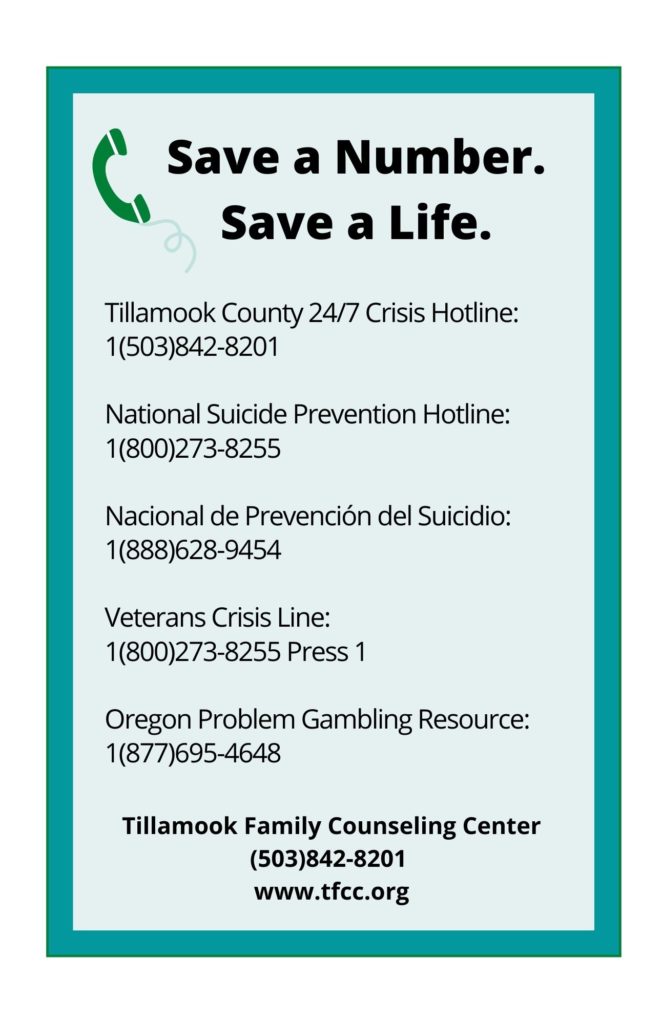
by Guest | Sep 22, 2021 | Being Well
Last week we shared Mariah Decker’s story, about her personal journey and how experiencing trauma in her early childhood led to severe depression, anxiety and poor health into her twenties. Thanks to on-the-job training for Adverse Childhood Experiences (ACEs), Mariah was able to make the connection between her exposure to early trauma and her mental and physical health concerns. Taking inspiration from the quote, You can’t pour from an empty cup, she began a process to fill her own cup and restore her health.
Struggling with mental health issues and obesity, Mariah was overwhelmed by the thought of making healthy behavior changes. “It was terrifying.” she recalls. “How am I going to get from where I am now to where I want to be?” She took a step back and thought, “What are the little decisions I can make today that are going to compound into a big difference later on?”
Mariah’s plan for personal transformation did not start with a goal of losing weight. She decided to focus first on getting her “mind right” and says, “The more I got my brain in order, the more I started feeling happy.” She began by practicing being present and grateful each day, finding inspirational quotes and choosing to have a positive perspective. That was a turning point, she says. “With my mindset and motivation in place, I was ready to take charge of my life and not just be a bystander.”
As a teacher at South Prairie School, Mariah was required to set professional goals each year and she had the option to include personal goals as well. Mariah decided to make her health transformation a “work-thing,” where her boss could help hold her accountable. “I decided to set a personal goal – something I had never done before – to do one social thing every month. I had to post about it on Facebook and tag my boss.” Despite extreme anxiety, she committed to completing one new social activity each month, like going out for ice cream with a co-worker or attending a family dinner. Over time, getting out and doing things became easier and more fun and she started taking better care of herself and her appearance.
One of Mariah’s monthly goals was to go to the YMCA. She and her husband had a membership but she had never used it. “I had never even walked through the doors of the building,” she says. “That became my goal – just to walk through the doors. Sometimes, the hardest part is just getting started; I didn’t want to put any pressure on myself to use the gym or join a class. All I had to do was go there and see what it was all about.”
When she did walk through the doors of the Y, people were friendly and welcoming. “I did it and none of my worst fears were realized,” Mariah says. “What I saw was there were real people who looked like me, were the same size as me, on elliptical machines, grunting, lifting weights, swimming. And I realized, this wasn’t just for the healthy people, it was for all the people. I ended up signing up for a class and it evolved from there. I did Zumba and weight training classes. I even work out at home now.” Mariah explains that it is the “not knowing” that’s scary. Once she put herself into each new situation, she was able to discover that it was okay and gained the confidence she needed to try the next thing.
Now, four years into her journey, Mariah is quick to point out that this is a long-term gig. “From the very beginning I told myself this isn’t going to be a fad thing. This is going to be a lifestyle. And It looks different today than it did four years ago.”
Other steps Mariah has taken during this journey include eating a mostly plant-based diet, consuming much smaller portions, and nearly eliminating junk food. “I know myself well enough to allow for an indulgence here or there; I do love French fries,” she says.
Having lost eighty pounds, people have taken notice of Mariah’s physical transformation but she says that isn’t what motivates her. “It’s an extra thing; My body is just a vessel. What motivates me is how I feel – having more energy and vitality.”
And, while she does not belong to an organized religion, Mariah emphasizes the role spirituality has played in supporting her well-being. “I feel really close to God. It is related to my practice of gratefulness. It’s hard to be judgmental or feel angry when you are practicing being grateful. It’s a continuous, on-going process to fill your own cup.”
AUTHOR: Michelle Jenck, Tillamook County Wellness Coordinator
For more local health and wellness information, follow Tillamook County Wellness on Facebook, Instagram and Twitter.

by Guest | Sep 20, 2021 | Being Well
September is National Suicide Awareness month. This topic is much more important when coupled with the traumatic stress that most of us have faced during the ongoing pandemic.
One of the top 10 causes of death for Oregonians is suicide. Oregon has more deaths each year from suicide than motor vehicle accidents. There are more than 600 deaths by suicide and more than 1,800 hospitalizations due to suicide in Oregon each year. [1] The friends and family members (suicide loss survivors) left behind are forced to navigate the tragedy of loss. In many cases, suicide loss survivors are left in the dark. Too often the feelings of shame and stigma prevent them from talking openly.
Suicidal thoughts, much like other mental health conditions, can affect anyone regardless of age, gender, sexual orientation or background. In fact, suicide is often the result of pain from an untreated mental health condition. Suicidal thoughts, although common, should not be considered normal and often indicate more serious issues.
Crisis resources
- If you or someone you know is in an emergency, call 9-1-1 immediately.
- If you are in crisis or are experiencing difficult or suicidal thoughts, you can call the National Suicide hotline/Lines for Life (Oregon) at 1-800-273-TALK (8255).
- If you are uncomfortable talking on the phone, you can text 273TALK to 839863 at Lines for Life in Oregon. They also have veteran’s and teen peer support available by phone or text message.
Know the warning signs
Any person exhibiting these behaviors should get help immediately:
- Threats or comments about killing themselves, also known as suicidal ideation, can begin with seemingly harmless thoughts like “I wish I wasn’t here” but can become more overt and dangerous
- Increased alcohol or drug use
- Aggressive behavior
- Social withdrawal from friends, family and the community
- Dramatic mood swings
- Talking, thinking or writing about death
- Impulsive or reckless behavior
- Putting their affairs in order and giving away their possessions
- Saying goodbye to friends and family
- Mood shifts from despair to calm
- Planning, possibly by looking to buy, steal or borrow the tools they need to commit suicide, such as a gun or prescription medication
If you are unsure, a licensed mental health professional or your primary care provider can help assess risk. These services are a covered benefit with many insurance plans, including Oregon Health Plan.
Risk factors for suicide
Research has found that about 90 percent of individuals who die by suicide are experiencing mental illness. A variety of things may put a person at risk of suicide, including:
- A family history of suicide.
- Substance abuse — drugs and alcohol can result in mental highs and lows that exacerbate suicidal thoughts.
- Intoxication – more than one in three people who die from suicide are found to be currently under the influence.
- Access to guns.
- A serious or chronic illness.
- Gender – although more women than men attempt suicide, men are four times more likely to die by suicide.
- A history of trauma or abuse.
- Prolonged stress.
- Isolation.
- Age – people under age 24 or above age 65 are at a higher risk for suicide.
- A recent tragedy or loss.
- Agitation and sleep deprivation.
Can thoughts of suicide be prevented?
Mental health professionals are trained to help a person understand their feelings and can improve mental wellness and resiliency. Depending on their training, they may be able to provide additional ways to help including:
- Psychotherapy, such as cognitive behavioral therapy and dialectical behavior therapy, can help person with thoughts of suicide by recognizing unhealthy patterns of thinking and behavior, validate troubled feelings and learn coping skills.
- Medication may also be used if necessary to treat underlying depression and anxiety and can lower a person’s risk of hurting themselves. Depending on the person’s mental health diagnosis, other medications may be used to alleviate symptoms.
One difficult conversation can save a life
Have this crucial conversation with someone you love, you can talk with passion and strength around suicide prevention. The truth is, we can all benefit from honest conversations about mental health conditions and suicide, because just one conversation can save a life.
[1]https://colpachealth.org/about-us/regional-health-improvement-plan
AUTHOR: Patti Atkins, APR, communications consultant for Tillamook County Community Health Centers

by Guest | Sep 15, 2021 | Being Well
A high score is usually a good thing but not when it comes to the number of adverse childhood experiences, or ACEs, a person has. According to research, a person’s ACE score directly corresponds with their risk for obesity, type 2 diabetes, heart disease, and even cancer. It makes sense that factors like divorce, death of a caregiver, verbal or sexual abuse and other traumatic exposure affect a person’s emotional and mental well-being. What we now know, however, is that this exposure can also impact an individual’s physical health over the course of their lifetime. And, that risk can be passed on to future generations through a process called epigenetics.
There is some good news, however. Protective factors like healthy relationships, school success, a spiritual practice and other positive social supports can offset some of these early challenges. The best news is that your ACE score isn’t your whole story; you can write your own happy ending.
Mariah Decker, or Mrs. Decker, as her students referred to her during her eight years as an educator, did just that. Despite starting out life with a very high ACE score, Mariah has been able to build a life of joy, fulfillment, and better health.
From age 14 into her early-twenties Mariah struggled with crippling depression and anxiety. Aside from going to work or school, she was unable to leave the house. “A lot of people didn’t know because I didn’t talk about it. I was terrified to go to the doctor; I didn’t want to be put on medication, be put on someone’s caseload, and forgotten about.”
Sick and tired of being sick and tired, Mariah gradually began a process to take control of her own life. She began to see the connection between those early childhood experiences and her mental and physical condition. “I wasn’t healthy and I wasn’t happy with myself. I weighed 80 pounds more than I do today and was so big that, even though I am only five feet tall, I was wearing my husband’s clothing. I avoided mirrors and didn’t like having my picture taken.” Well intended people gave her advice, encouraging her to start exercising. “People would tell me I just needed to move more and I would think, ‘Why would I want to move all of this?’ I didn’t feel comfortable enough in my body to want to move it that way.”
To get past the frustrations over her physical and mental health challenges, Mariah, began to focus on being grateful for the things she did have. She understood that her strong work ethic and early academic success gave her resilience but she also realized how much her early trauma was keeping her from living the kind of life she desired.
At the age of 20, Mariah began working for the Tillamook School District (TSD9). Acknowledging the fact that early childhood exposure to trauma also impacts learning, TSD9 had brought ACEs training to their district staff and teachers. Mariah was fortunate enough to take part in that training, which led to a better understanding of her own journey.
As a computer teacher, Mariah had a unique opportunity to work with every student at South Prairie Elementary School. Her heightened awareness around ACEs allowed her to recognize individual student’s needs. This helped her create meaningful connections with each student and be a positive support in their lives. “If even one kid in my classroom felt loved, then I considered that a success.”
In addition to ACEs training, TSD9’s staff development included setting annual professional goals with the option to include personal goals as well. The goal setting system provided a good opportunity for Mariah to tackle her personal challenges. Rather than setting weight loss goals, Mariah decided to take a different approach. “I decided to get my brain in order first,” she says. Looking up one inspirational quote each day, she found a saying that resonated: You can’t pour from an empty cup. Mariah decided it was time to fill her cup.
This was only the beginning of Mariah’s story. Read next week’s article to learn how taking one small step opened the door to profound personal transformation.
AUTHOR: Michelle Jenck, Tillamook County Wellness Coordinator
Photo Credit: Andrea Rieger of Golden Hour Images
For more local health and wellness information, follow Tillamook County Wellness on Facebook, Instagram and Twitter.

by Guest | Sep 8, 2021 | Being Well
Good things are happening in our local schools. If you have driven along Hwy 101 through South Tillamook County, you probably noticed changes at Cloverdale Elementary School. At a recent Nestucca Valley Chamber meeting, School Superintendent Misty Wharton gave a tour of the elementary school upgrades and the addition that will house the district’s middle school grades 6-8. Along with the much-needed facelift, the school now has clean water, generator capacity and a 10,000 square foot gym that doubles as an emergency shelter. Other features include a new kitchen, media center, computer lab, and career technology lab.
Students will especially benefit from the new covered outdoor play area and playground equipment, sports fields and beautiful school garden ready for harvest. Through innovative partnerships, Nestucca school district is offering hands-on nutrition and science programming, all enhanced by the recent upgrades. The design and atmosphere of the new space is beautiful and welcoming. Kids returning to school will get a true sense of how much their community cares about their learning environment.
People spend a large portion of their lives at school and work. These environments affect our health and sense of well-being. According to Tillamook School Superintendent, Curt Shelley, “Tillamook is a great community to work and live in, where everyone can enjoy a healthy lifestyle. Fall is an exciting time as we welcome staff and students back to school.” Some of the activities Tillamook School District 9 is working on include:
- Finishing up bond projects, including the Liberty bus drop off/pick up and parking lot. This improvement was needed for safety purposes to move loading and unloading off Stillwell Avenue. It will also provide joint parking between the Y and TSD9.
- Remodeling the high school science lab with much needed workstations and additional storage.
- On-going system-wide wellness initiative that includes mentoring, Wellness Wednesdays and other activities that support social and emotional wellbeing. These have been very popular and impactful in improving staff and student experience at TSD9.
Neah-Kah-Nie School District (NKN) is also making investments to help students build health and resilience. Two new 5000 square foot covered play structures were recently built at Garibaldi Grade School and Nehalem Elementary. These structures enable students to recreate during and after school hours outdoors in inclement weather. NKN has also expanded half day preschool at the School District main office to full time preschool at Garibaldi Grade School and Nehalem Elementary.
Through a medical sponsorship from the Rinehart Clinic, NKN School District has added a new school-based health center that will be staffed by a Rinehart Clinic Family Nurse Practitioner on a part-time basis. The district has also hired a full-time school nurse. The time dedicated to nursing services will almost double from last year and will serve pre-K through 12th grade students who reside in the School District boundaries.
School-based wellness centers can provide well checks, sports physicals, care for illness and injury, immunizations, covid testing and vaccinations, routine lab tests, prescription medication support, vision and dental screenings and referrals, and other health education and counseling, including age-appropriate reproductive health information.
Tillamook County schools all offer comprehensive wellness services, including mental health counseling and trauma-informed learning environments. Support for LGBTQ students and on-going efforts to increase equity within school settings is a priority for our local schools. Having a sense of belonging in nurturing environments is very important to a child’s development. When kids feel safe and valued, they can focus on learning and developing into resilient adults later in life.
We have all been through a lot this past year and a half, but disruptions in academic and social routines can be especially difficult for kids. We are excited to share the care and concern local school districts are demonstrating on behalf of students, staff and faculty.
AUTHOR: Michelle Jenck, Tillamook County Wellness Coordinator
For more local health and wellness information, follow Tillamook County Wellness on Facebook, Instagram and Twitter.

by Guest | Sep 1, 2021 | Being Well
There are many resources in our community to support people during a crisis. One of the best and most important ways to build community resilience is for more people to get involved. There are many free trainings and volunteer opportunities through which we can build a stronger community response to meet the needs of those around us. Janeane Krongos, Prevention Coordinator with the Tillamook Family Counseling Center, shared this information about the upcoming QPR Gatekeeper training:
One of my roles as a Prevention Coordinator at the Tillamook Family Counseling Center is to provide community members with opportunities to be trained in the Question, Persuade, and Refer (QPR) Gatekeeper training. This training is an evidenced based suicide prevention training that has been used worldwide. Participants who attend this training can expect to learn, common suicide warning signs, suicide facts, how to offer hope, and the three steps of QPR.
This past year, TFCC presented eight free QPR Gatekeeper trainings (trainings were presented September 2020-July 2021). I am happy to report that there were 85 community members who had attended one of these trainings. TFCC will continue to offer these trainings to community members throughout this year. The next two QPR Gatekeeper trainings will take place virtually, September 8th at 10:00-11:30AM and September 24th at 10:00-11:30AM. To learn more about these trainings please feel free to contact me at Janeanek@tfcc.org.
Recently, I contacted former QPR Gatekeeper training participants to request feedback for this training. I was fortunate enough to receive many thoughtful responses from past participants. Continue reading to learn what local participants liked about this training.
“This was my first time taking a response training focused on mental health. I have had difficult conversations in the past with friends about depression or suicide and I have always struggled in knowing the best way to respond or support someone. The QPR course offered an outline for how to approach these conversations, which I greatly appreciated because you never know when you might need to rely on that training.”
– Public Health Professional
“I appreciated the QPR gatekeeper training, because it offers hope by providing concrete ways to respond to friends, family members, or co-workers who might be at risk of suicide.”
– Community Response Coordinator Advocate for Tides of Change
“I liked the fact that it went into detail on how we should go about asking a person questions, to find out if they are considering attempting suicide. I also liked the fact that there were several participants, who were involved in the session & had their own input.”
– Worksource JOBS Program
“What I appreciated about the QPR training was the way it removes both the stigma around suicide and the hopelessness that once a person has decided to take their life there is no turning them around.”
– Faith Leader
“Things that I enjoyed about the QPR gatekeeper training, offered free of charge, required only 1 morning of my time, was a small group with local names and faces, the material is from a trustworthy source and I was confident that it was taught to fidelity standards, Nothing presented was beyond my comfort zone, no follow up was required to prove that I retained what was taught, and mostly, I feel empowered to effectively intervene with family, friends, or clients when I suspect they might be considering suicide.”
– Family and Youth Services Coordinator
“I thought the QPR training was very helpful and useful when we encounter a Veteran that is having a mental health crisis”.
– Veterans Services
“I like that they gave actual data, and I liked that they gave examples of what to do and what not to do.”
– Student
“The QPR was very informative and professional. I learned a lot. I disposed of some myths in my thinking.”
– Retired teacher
“QPR was a safe and positive learning opportunity, as a virtual space to raise my awareness, learn about things to look for, and gain tools to respond. I highly recommend this learning opportunity!”
– Nonprofit Organization Staff/Parent
“I really enjoyed being together with other invested folx to remind us that we can create a network of support in our very own communities. The training also addresses common misconceptions and myths around suicide, urging us to Question, Persuade, and Refer (QPR), in order to save lives. I would definitely recommend this training to others and would be interested in learning how this training is adapted to be shared amongst youth.”
– Community Member/Social Worker
Together, we can build a safer community. To learn more about resources in Tillamook County, visit these sites:
AUTHOR: Janeane Krongos, Prevention Specialist at Tillamook Family Counseling Center
And for more local health and wellness information, follow Tillamook County Wellness on Facebook, Instagram and Twitter.

by Guest | May 19, 2021 | Being Well
“I felt like I was at the bottom of a deep well with no way to get out.” This is how one patient described their depression symptoms to me. Another patient having panic attacks said, “All of a sudden I was terrified and thought I was going to die, but I didn’t know why.”
Our mental health is just as important as our physical health, and the two are closely connected. After all, our brain is part of our body. Over 20 years ago I experienced an episode of depression that required medical treatment. I, too, felt like I was at the bottom of a well. I couldn’t understand why people around me were enjoying life when I could not find any enjoyment in my own life. I sought medical help and I successfully made my way through and came out the other side.
I learned from that episode that self-care is vitally important to both our physical and mental health.
Many of the lifestyle choices that improve our physical health can also improve our mental health. Mental health problems can sometimes be just as serious as physical health problems, so don’t hesitate to contact your health care provider if you have any concerns.
The National Institute of Mental Health says it well, “Mental health is more than the absence of a mental illness—it’s essential to your overall health and quality of life.”
What steps can we take to be mentally healthy?
Move! – No, I don’t mean pack your bags and relocate. I mean move your body! Walking 30 minutes a day can work wonders. It can even be broken up into 10-minute walks, 3 times a day. If you can only walk 20 minutes or 10 minutes at a time, go for it. Join a walking group for group support and fun interaction. Or, watch for the TBCC catalogue in your mailbox each quarter for the latest group fitness programming from partners like the Tillamook YMCA and NCRD.
Spend time outdoors – science tells us that we get extra benefit from being outside. Being outside can be a chance to take a break and enjoy some peace.
Make Healthy Food Choices – including lots of fruits and vegetables and whole grains in your diet helps reduce inflammation, helps with digestive health and helps you feel better overall. The Mediterranean Diet is a good place to start.
Sleep – try to get a minimum of 7 to 8 hours of sleep as often as you can. Avoid using your cell phone, computer or TV close to bedtime because blue screens can make it harder to sleep well.
Stay connected to positive people – Spend time with supportive friends and family. Healthy relationships help us feel better.
Relax – try to set aside time daily for yourself to sit and relax without using your computer, TV or cell phone (unless you are using a relaxation app). Try meditation, prayer, yoga, Tai Chi, Qi Gong or other calming activities. This is time for YOU. Check the schedule at the Tillamook YMCA for free community classes such as Tai Chi and Qi Gong.
Practice Gratitude – make a list of things you are grateful for, and before you go to sleep at night think of 3 positive things that happened during the day.
If you are already feeling stressed or overwhelmed, this list might be too long to tackle all at once. Choose one activity from the list to focus on and give it a try. I have been working on getting consistent sleep and it has made a big difference in how I feel.
What can we do to help a friend or loved one struggling with mental health issues? The best thing to do is to be present. Be with them. Listen. You don’t have to give advice or try to solve their problems. As someone who has been in that situation, I can tell you that just having someone there by your side can make all the difference in the world.
And if you feel you might need professional help, please know you have options. Talk to your health care provider. Many primary care offices have mental health professionals as part of their patient care team to make it easy for you to get the care you need.
Like physical health, mental health is not just one condition. In the way that our physical health can be affected by a wide variety of issues such as asthma, diabetes or high blood pressure, our mental health can be affected by a variety of issues including anxiety, depression, PTSD, bipolar disorder and others. The National Institute of Mental Health web page has a list of Health Topics to help us learn about and understand our mental health.
Knowledge is power. Understanding mental health helps us be better able to manage it. And, self-care is the one thing we can do for ourselves, often at no extra cost.
Visit the Tillamook County Wellness page for more articles about staying mentally healthy.
AUTHOR: Dr. Ben Douglas, MD Adventist Health Tillamook
Dr. Ben Douglas has been providing healthcare for more than 35 years. He is board certified in Family Medicine and Lifestyle Medicine. His focus is keeping people healthy from birth through the golden years. In his free time, Dr. Douglas enjoys cooking, running, sailing and playing guitar.
For more local health and wellness information, visit www.tillamookcountywellness.org or follow Tillamook County Wellness on Facebook, Instagram and Twitter.







